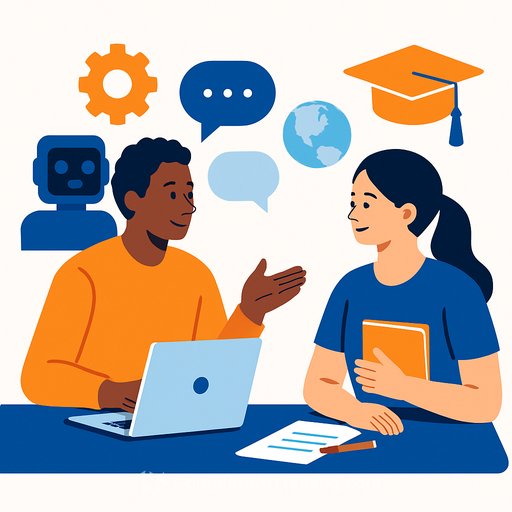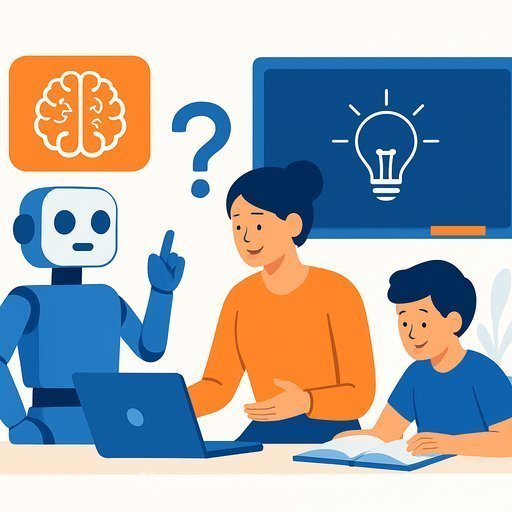‘IOs’ Offer a Solution to AI Overreliance in Higher Education
Interactive orals (IOs) provide a practical alternative to traditional assessments that are increasingly vulnerable to AI misuse. These scenario-based conversations promote authentic learning, reduce dependence on AI-generated content, and help build students’ professional communication skills.
Artificial Intelligence in Higher Education
AI is changing how student assessments are conducted. Written and prerecorded tasks have become more susceptible to impersonation and inauthentic submissions due to AI tools. IOs address this challenge by introducing a human-centred, interactive method. Since their introduction in 2015, IOs have been adopted by over 30 universities across Australasia, Europe, and Southeast Asia.
This article is the first in a two-part series exploring what IOs are, how they uphold academic integrity, and how they nurture real-world communication skills.
What Are IOs?
IOs are not traditional oral exams or rehearsed presentations. Instead, they involve structured, scenario-based conversations that mirror professional and disciplinary settings. Students participate in unscripted dialogues where they apply knowledge, solve problems, and think critically.
These conversations reflect real-life interactions like client consultations or ethical reviews. Students justify their decisions and explore issues in real time. The format encourages deep preparation and reflection, supported by effective scaffolding.
Unlike conventional oral exams that often follow a rigid question-and-answer format with memorised responses, IOs demand dynamic reasoning. Students must build on prior answers, adjust to new information, and articulate nuanced explanations as the discussion progresses.
Authentic Assessment Through IOs
This interactive approach makes it difficult for students to rely on AI-generated or outsourced content. IOs actively probe students’ genuine understanding, critical thinking, and ability to handle complex, unexpected challenges—skills essential in professional environments.
For example:
- In a business ethics course, students might simulate a client consultation, advising a fictional company on an ethical dilemma instead of presenting a pre-prepared case study.
- In software engineering, rather than a traditional coding exam, students could participate in an architectural design review. Acting as lead developers, they defend their software designs to instructors role-playing clients or stakeholders, responding to real-time questions about scalability and security.
These dialogues develop problem-solving, critical thinking, and professional communication skills beyond technical expertise. IOs help students apply learning in authentic, personalised contexts, better preparing them for AI-influenced industries.
How IOs Uphold Academic Integrity
With AI detection tools proving unreliable, the focus is shifting to verifying whether genuine learning has taken place. IOs require students to demonstrate understanding live through personalised dialogue. They must explain their reasoning, build on previous responses, and adapt to scenario-specific prompts.
This level of personalisation makes it difficult to outsource or use AI-generated answers. Rather than banning AI, IOs encourage its responsible use—for example, by asking students to critique AI outputs or apply AI tools thoughtfully within their scenarios.
Building Real-World Skills
IOs cultivate essential graduate skills valued by employers. Through realistic scenarios, students practise clear communication, quick adaptation, and informed decision-making. Engaging in professional discourse helps develop sound judgement and ethical reasoning.
This form of authentic assessment boosts student confidence, career readiness, and the ability to transfer learning to workplace settings. Embedding IOs across academic programs equips students with competencies that meet industry expectations.
The next article in this series will focus on scaling IO implementation and clarifying what distinguishes them from traditional oral exams.
Your membership also unlocks:






